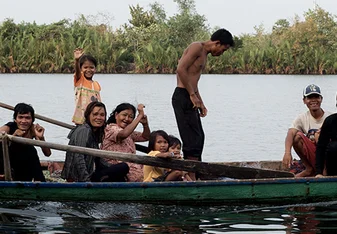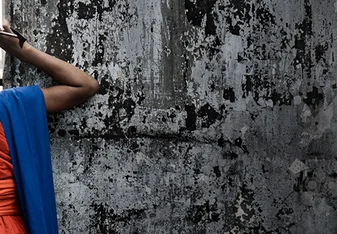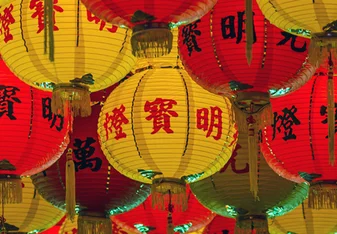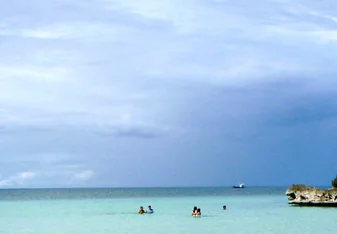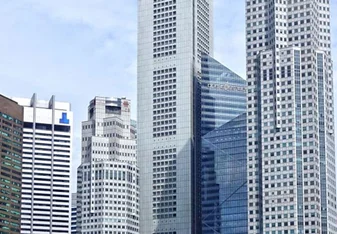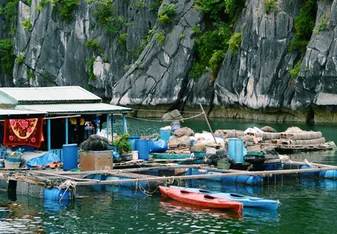Volunteer Programs in Myanmar (Burma)
Volunteer Programs in Myanmar (Burma)
About
Myanmar, formerly known as Burma, has recently opened its doors to the world following a long period of civil war and isolation. Visitors from across the globe are discovering a beautiful, fascinating country, filled with spectacular Buddhist monuments and vast expanses of verdant, untamed nature.
However, years of conflict have left their mark on Myanmar and its people. While the country is hopeful for a bright future, there is a lot of work to do in areas including education, healthcare, infrastructure, and community development. Various organizations are working to tackle these issues and work toward a new, more prosperous Myanmar, and you can be a part of this through volunteering.
Program Types
Volunteer placements in Myanmar are plentiful and span various areas and industries. You will be able to choose between a large international organization or a smaller local charity, as well as whether you’d prefer to work in a city or the countryside.
Education
Myanmar has only recently opened its doors to international trade and tourism, which means that very few people throughout the country speak English. As Myanmar becomes more globalized, the demand for English education is steadily increasing. Education volunteers in Myanmar will have the opportunity to teach English to both children and adults, either in cities or rural communities.
Healthcare
There is a significant demand in Myanmar for volunteers to deliver front-line care and health education throughout the country. Some of these placements are in larger cities, however, the majority are based in small rural townships and villages with limited resources.
Volunteers with experience in healthcare -- such as medical students and graduates -- are usually preferred, but this is not a requirement for all placements.
Community Development
Community development projects are becoming increasingly widespread in Myanmar’s rural areas. These regions are likely to be the least affected by the country’s recent move towards development and globalization, and remain some of the poorest in Southeast Asia. As a community development volunteer, you will be working with NGOs in empowering locals to improve their communities.
Refugee Support
Myanmar has been involved in a civil war for over 50 years, which has led to an extraordinary number of ethnic refugees. While most of the conflict has calmed down, the persecution of the Rohingya people in the West of the country continues to be an ongoing crisis.
Most of Myanmar’s refugees have fled to neighboring countries, but many of them have not. Several organizations work in targeted regions -- particularly the borders with Bangladesh and Thailand -- to provide aid and support to these refugees.
Planning Your Trip
Myanmar is less Westernized than many of its more tourist-friendly neighbors like Thailand. This means that you will need to plan your trip carefully to make sure you have everything you need once you arrive.
Where To Volunteer in Myanmar (Burma)
The main decision you will have to make regarding location is whether you want an urban or rural experience. Both can be incredibly interesting and rewarding, but they each come with their own pros and cons.
Overall, working in a city allows you to be a tourist in your free time, and may come with more home comforts. However, rural placements allow you to immerse yourselves in traditional communities and make a much more direct impact through your work.
The biggest cities in Myanmar are Yangon and Mandalay, and together they represent most of the international volunteer placements in Myanmar. Both are vibrant and exciting cities and great places to volunteer in: Yangon is known for its colonial architecture, stunning Buddhist temples, and colorful markets, while Mandalay is the cultural and economic heart of the country.
Housing & Accommodation
Most volunteer opportunities in Myanmar include accommodation. This usually consists of shared housing with other volunteers. If you are volunteering in a major city, you can expect a relatively high standard of living with modern comforts, while rural placements are likely to involve simpler accommodation.
Things like air conditioning, hot water, and Internet are not necessarily a given -- ask your chosen organization for details so you can prepare accordingly.
In the rare event that your volunteering organization does not directly provide you with accommodation, they should still be able to help you find it. A guesthouse can be a good idea for a shorter stay, but you will probably need to arrange something more permanent, perhaps a homestay with a local, if you are planning to volunteer for several months.
Language Requirement & Tips
Most people in Myanmar don’t speak English, especially outside of the cities. While you don’t need to speak Burmese to volunteer in Myanmar, learning the basics can help you feel more at home and communicate with locals outside of your chosen organization.
Burmese language classes are not exceedingly common outside of certain specialist universities, so your best bet is an online course. Some volunteering placements do offer local language classes, so look out for this if local immersion is important to you.
Packing Tips
Myanmar is always hot, with the monsoon season being particularly humid. Pack lightweight, quick-dry clothing and at least one pair of high-quality walking shoes. Don’t forget some long-sleeved and full-leg options for temple visits and mosquito protection.
Sunscreen and insect repellent are a must, as is a hat to protect your neck and face. You will also need a light rain jacket if you are going to be in the country during the humid season (May-September).
Additional Tips
The best place to get a SIM card is at the airport upon arrival in Yangon. The staff there is likely to speak English and will be able to recommend the best provider and data plan for you. Internet signal is quite reliable in Yangon, but can be very patchy in other areas of the country.
In fact, you won’t be able to rely on the internet too much for your planning or travel. Get paper copies of all your important documents (including flight and hotel reservations) and, if you’re based in a city, a physical map won’t hurt.
Health & Safety
Myanmar has been opening itself up to tourism in recent years, and as a result, is becoming increasingly accommodating to Western travelers. Crime is rare but healthcare still leaves much to be desired, so preparation before travel is key.
Health
Healthcare in Myanmar can be quite poor, especially outside of Yangon. If you need emergency care, you will either want to attend an international clinic in Yangon (which can be very expensive) or be transported to a hospital in Bangkok.
For this reason, it is absolutely crucial that you have good health insurance for your trip. Some volunteering organizations include health insurance in their fee, but in many cases, it will be up to you to arrange this.
Visitors to Myanmar should have the following vaccines up to date: adult diphtheria and tetanus, polio, Hepatitis A and B, MMR, typhoid, and chickenpox (if you have not had chickenpox before). Depending on where you are doing, you may also need malaria medication -- ask your volunteering organization for advice.
Never drink tap water and always check the seal on bottled water. Street food is generally safe (and delicious!) but you should only eat in popular, crowded restaurants.
Safety
Generally speaking, Myanmar is a safe country. The conflict of the civil war may still be ongoing, but this is mostly happening in areas that are closed off to visitors. Crimes such as theft or mugging are exceedingly rare, as are scams and touts. The usual amount of traveler common sense should be enough to keep you safe.
Tattoos and other decorative depictions of the Buddha (e.g: clothing or jewelry) are considered offensive and can lead to real jail time. If you have a tattoo of the sort, keep it covered when in public to avoid any problems.






